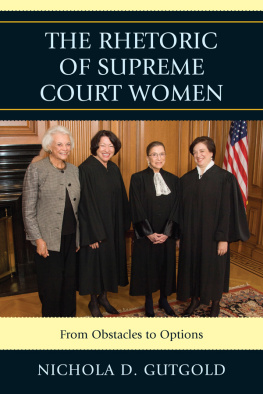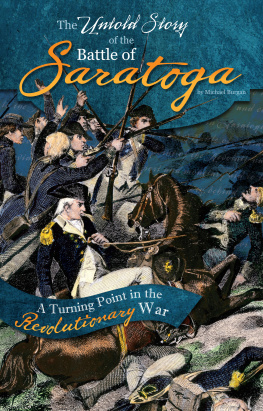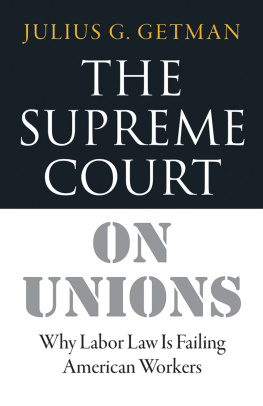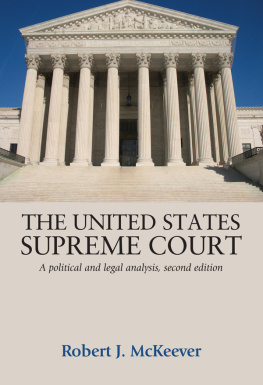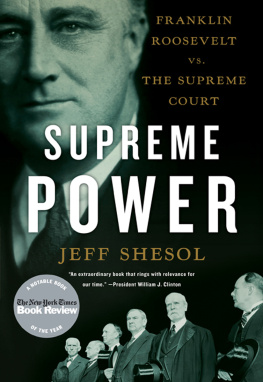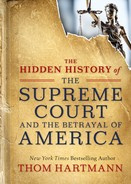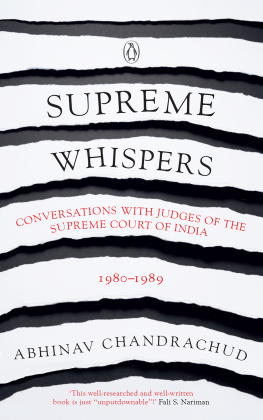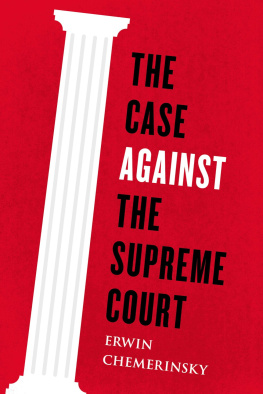Edwards Sebastian - American Default: The Untold Story of FDR, the Supreme Court, and the Battle over Gold
Here you can read online Edwards Sebastian - American Default: The Untold Story of FDR, the Supreme Court, and the Battle over Gold full text of the book (entire story) in english for free. Download pdf and epub, get meaning, cover and reviews about this ebook. City: USA, year: 2019, publisher: Princeton University Press, genre: Politics. Description of the work, (preface) as well as reviews are available. Best literature library LitArk.com created for fans of good reading and offers a wide selection of genres:
Romance novel
Science fiction
Adventure
Detective
Science
History
Home and family
Prose
Art
Politics
Computer
Non-fiction
Religion
Business
Children
Humor
Choose a favorite category and find really read worthwhile books. Enjoy immersion in the world of imagination, feel the emotions of the characters or learn something new for yourself, make an fascinating discovery.

- Book:American Default: The Untold Story of FDR, the Supreme Court, and the Battle over Gold
- Author:
- Publisher:Princeton University Press
- Genre:
- Year:2019
- City:USA
- Rating:3 / 5
- Favourites:Add to favourites
- Your mark:
- 60
- 1
- 2
- 3
- 4
- 5
American Default: The Untold Story of FDR, the Supreme Court, and the Battle over Gold: summary, description and annotation
We offer to read an annotation, description, summary or preface (depends on what the author of the book "American Default: The Untold Story of FDR, the Supreme Court, and the Battle over Gold" wrote himself). If you haven't found the necessary information about the book — write in the comments, we will try to find it.
Edwards Sebastian: author's other books
Who wrote American Default: The Untold Story of FDR, the Supreme Court, and the Battle over Gold? Find out the surname, the name of the author of the book and a list of all author's works by series.
American Default: The Untold Story of FDR, the Supreme Court, and the Battle over Gold — read online for free the complete book (whole text) full work
Below is the text of the book, divided by pages. System saving the place of the last page read, allows you to conveniently read the book "American Default: The Untold Story of FDR, the Supreme Court, and the Battle over Gold" online for free, without having to search again every time where you left off. Put a bookmark, and you can go to the page where you finished reading at any time.
Font size:
Interval:
Bookmark:
AMERICAN DEFAULT

The Untold Story of FDR, the Supreme Court, and the Battle over Gold

SEBASTIAN EDWARDS

Princeton University Press
Princeton and Oxford
Copyright 2018 by Princeton University Press
Published by Princeton University Press,
41 William Street, Princeton, New Jersey 08540
In the United Kingdom: Princeton University Press,
6 Oxford Street, Woodstock, Oxfordshire OX20 1TR
press.princeton.edu
Jacket images: 1. Chief Justice Charles Evans Hughes with Supreme Court Justices at the White House, Oct. 13, 1930 / Everett Collection / Alamy Stock Photo. 2. Franklin D. Roosevelt bronze medal / U.S. Mint
All Rights Reserved
Library of Congress Control Number 2017959002
ISBN 978-0-691-16188-4
British Library Cataloging-in-Publication Data is available
This book has been composed in Dante MT Pro and Kabel LT Std
Printed on acid-free paper.
Printed in the United States of America
1 3 5 7 9 10 8 6 4 2
This book is for
Magdalena Figueroa Yaez
and for
Aurelia Grace Edwards
CONTENTS
INTRODUCTION
This is the story of a forgotten episode in U.S. history, the story of the great debt default of 19331935, of the time when the White House, Congress, and the Supreme Court agreed to wipe out more than 40 percent of public and private debts. This is also the story of the nations efforts to get out of the Great Depression, bring deflation to an end, and get people back to work. It is the story of how the three major powers of the timethe United States, the United Kingdom, and Francefailed to agree on policies that would have sped up the recovery and reduced the suffering of millions of their citizens. It is the tale of how perplexed economists changed their views about the world, and discarded decades-old tenets and dogmas. Finally, it is an account of the early stages of the struggle between President Franklin Delano Roosevelt and Supreme Court Chief Justice Charles Evans Hughes, a confrontation that led to the presidents attempt to pack the Supreme Court in February 1937.
There are many ways of telling this story. For instance, we could begin in October 1929, when the stock market crashed and the Great Depression was unleashed. Or we could begin on November 8, 1932, when American voters decided to turn their backs on Herbert Hoover and elected Franklin D. Roosevelt by a landslide. But possibly, the best starting point is April 5, 1933, when President Roosevelt, who had been in office for exactly one month, issued an Executive Order requiring people and businesses to sell, within three weeks, all their gold holdings to the government at the official price of $20.67 per ounce. The Order was published in every newspaper and transmitted over thousands of radio stations. Large signs were placed in post offices around the country. The posters were printed in large block letters and informed the public that everyone had to deliver on or before May 1, 1933, all gold coin, gold bullion and gold certificates now owned by them to a Federal Reserve Bank, branch or agency.
The notice stated that there were only four exceptions to the presidents directive: each person could keep gold coin or certificate not exceeding $100 in value; industry and the arts could maintain enough metal as may be required for legitimate and customary use; financial institutions were allowed to hold gold in trust for a foreign central bank; and gold involved in proper transactions approved by the Treasury could be held temporarily by financial institutions. Those who didnt comply with the Executive Order faced criminal penalties [a] $10,000 fine or ten years of imprisonment, or both.
The public was shocked. Throughout the history of the nation, gold had been used as a store of value, and many families owned gold coins as part of their savings. Gold was given as wedding presents and at bar mitzvahs, and newborns often received a gift of one or two coins from their godparents. The fact that all metal had to be turned in to a relatively new institutionthe Federal Reserve had been created less than twenty years earliermade things even worse.
As the May 1 deadline approached, radio announcers reminded families of what they had to do. People could still not believe what was happening. It was true that during the previous months there had been an extraordinarily high demand for the metal and that hoarding had increased sharply, but that was exactly how the system was supposed to work: from time immemorial people resorted to gold when they faced economic uncertainty, including fears of banks collapses.
In the early hours of March 6, when he had been barely one day in office, President Roosevelt declared a national banking holiday. Its purpose was to stop massive withdrawals of currency and gold, and to put in place an emergency plan to strengthen the nations financial system. A week later, on March 13, banks began to reopen their doors, and people redeposited their cash and gold in massive amounts. Confidence was on the upswing after President Roosevelt delivered his first Fireside Chat on Sunday March 12. FDR assured the public that those banks that were reopened were solid and in excellent health. As the president had predicted, people were again glad to have their money where it will be safely taken care of.
So, if things were improving, why was the government forcing the public to part with their gold? Coercing people to sell their hard-earned metal was not an American thing to do. This had never happened before, not even during the Civil War, when the gold standard was suspended and the Treasury issued greenbacks.
The secretary of the treasury, Will Woodin, a small and affable man and lifelong Republican who loved music and had composed a number of popular tunes, including Raggedy Anns Sunny Songs, tried to explain the
The weeks that followed changed America forever. On March 5, after President Roosevelt convened Congress into an Extraordinary Session, the legendary Hundred Days began. Between March and June, 1933, Congress passed legislation that would fundamentally alter the way the economy functioned, and set the bases for the welfare state. Some of this legislation was later challenged in the courts system, and some was eventually declared unconstitutional by the Supreme Court. There is little doubt, however, that these feverish weeks of continuous debate and law-making planted the seeds of a new America, a country where the federal government would take an active role in economic and social affairs, a nation that would create an intricate safety net for the poor, the unemployed, and the disadvantaged.
While the foundations of the American economy were being profoundly changed by one act of Congress after another, the gold saga initiated with the April 5 Executive Order continued to unfold. On April 19, during the thirteenth press conference of his young presidency, President Roosevelt stated unequivocally that the country was now off the gold standard. He explained that the fundamental goal of abandoning the monetary system that had prevailed since Independence was to help the agricultural sector, which had been struggling for over a decade.
The next step in this drama came on May 12 when Congress passed the Agricultural Adjustment Act (AAA). Title III of this legislation included the Thomas Amendment, which authorized the president to increase the official price of gold to up to $41.34 an ounce. A devaluation of the dollar, many thought, would rapidly result in controlled inflation and would help farmers by raising commodity prices and by lightening their debts when expressed in relation to their incomes. A number of experts noted that Great Britain had devalued the pound in September 1931, and had slowly begun to recover.
Next pageFont size:
Interval:
Bookmark:
Similar books «American Default: The Untold Story of FDR, the Supreme Court, and the Battle over Gold»
Look at similar books to American Default: The Untold Story of FDR, the Supreme Court, and the Battle over Gold. We have selected literature similar in name and meaning in the hope of providing readers with more options to find new, interesting, not yet read works.
Discussion, reviews of the book American Default: The Untold Story of FDR, the Supreme Court, and the Battle over Gold and just readers' own opinions. Leave your comments, write what you think about the work, its meaning or the main characters. Specify what exactly you liked and what you didn't like, and why you think so.

